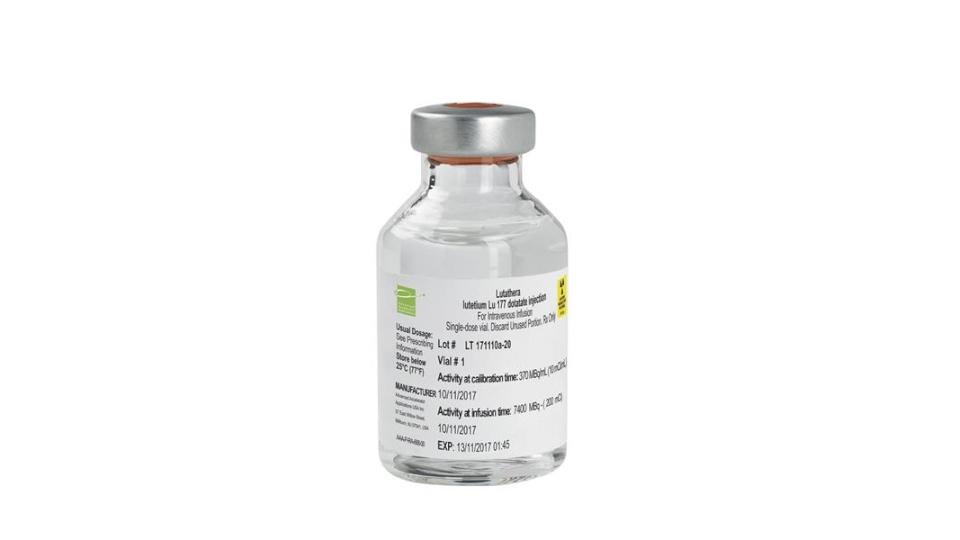Novartis eyes first-line use of Lutathera after trial win

Novartis is preparing to file for approval of its radioligand therapy Lutathera as a first-line treatment for people with rare neuroendocrine tumours after it showed a benefit in a phase 3 trial.
The NETTER-2 trial met the primary objective of an improvement in progression-free survival (PFS) in patients with gastroenteropancreatic neuroendocrine tumours (GEP-NETs), a diffuse range of cancers that are often diagnosed late as they cause a wide range of symptoms.
In the new study, Lutathera (lutetium [177Lu] oxodotreotide) was given alongside a high dose of long-acting somatostatin analogue octreotide, a standard therapy for GEP-NETs, and compared to octreotide alone in patients with grade 2 or 3 advanced tumours.
The combination improved PFS, as well as the objective response rate (ORR), with no new or unexpected side effects from combining the therapies, Novartis said this morning, adding that the data will be submitted to regulatory authorities.
Lutathera is the first radionuclide therapy to show efficacy as a therapy for previously untreated GEP-NETs. The drug has been FDA-approved since 2018 in combination with octreotide for GEP-NETS that are progressing despite standard treatment.
The drug – acquired by Novartis when it bought Advanced Accelerator Applications for $3.9 billion in 2017 – has been at the forefront of the Swiss pharma’s push into the radionuclide category and has been growing fast, with sales rising 43% to almost $300 million in the first half of this year.
“These positive results for Lutathera are quite remarkable and they represent the potential for radioligand therapy to make a meaningful impact for newly diagnosed patients living with advanced GEP-NETs,” said Jeff Legos, Novartis’ global head of oncology development.
“Exploring the use of radioligand therapies in earlier lines of treatment for patients with cancer is part of our larger, collaborative effort to precisely deliver novel treatment modalities directly to the cancer cells to improve patient outcomes.”
Following after Lutathera is the radionuclide with the greatest potential in Novartis’ pipeline, Pluvicto (lutetium [lu177] vipivotide tetraxetan), which was approved by the FDA for PSMA-positive metastatic castration-resistant prostate cancer (mCRPC) last year and has already become its biggest selling drug in the category, with first-half sales of $450 million despite manufacturing capacity constraints.
The drug was added to Novartis’ portfolio through a $2.1 billion acquisition of Endocyte in 2018, and the drugmaker has said it thinks sales could eventually top $2 billion, with upside to that if it also gets approval in follow-up indications including metastatic hormone-sensitive prostate cancer and as an earlier-line therapy for mCRPC.













